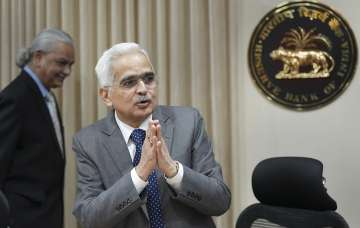Reserve Bank Governor Shaktikanta Das on Wednesday said that the Indian economy has made a strong recuperation and is among the quickest developing enormous economies in spite of elevated vulnerabilities and considerable headwinds.
He said that monetary dependability is non-debatable and all partners in the monetary framework should attempt to safeguard this consistently.
"The Reserve Bank and the other financial regulators remain steadfast in their commitment to safeguard financial stability in the face of potential and emerging challenges," he said in a foreword to Financial Stability Report (FSR).
In this delicate worldwide milieu, he said, adjusting the arrangement compromises, safeguarding macroeconomic and monetary steadiness, supporting certainty and supporting manageable development are first concerns for policymakers the world over.
Throughout recent years, the worldwide economy has been exploring progressive high-adequacy shocks: waves of the COVID-19 pandemic; extended international threats; rapid tightening of monetary policy; and the recent turmoil in the banking industry.
He asserted that macroeconomic prospects are in jeopardy as a result of economic fragmentation, particularly in emerging market and developing economies (EMDEs). The global and Indian financial systems have traveled somewhat divergent paths since the FSR's last issue in December 2022.
Since the beginning of March 2023, the turmoil in the banking industry in the United States and Europe has caused significant strains on the global financial system. The US-based Silicon Valley Bank and Signature Bank both went bankrupt earlier this year. In March, Credit Suisse provided UBS, the largest bank in Switzerland, with a bailout.
It stated that the global and Indian financial systems have charted somewhat different trajectories since the last issue of the FSR in December 2022. Additionally, the global financial system has been impacted by significant strains from the banking turmoil in the US and Europe since early March 2023.
According to the report, India's financial sector, on the other hand, has remained stable and resilient, as evidenced by the country's low levels of non-performing assets, adequate capital and liquidity buffers, and sustained growth in bank credit.
He said that the balance sheets of the banking and corporate sectors have been strengthened, resulting in a "twin balance sheet advantage" for growth. He also said that technology and growing digitalization are enhancing the reach and depth of financial intermediation, which opens up new opportunities for growth and financial inclusion.
As the new financial unrest in specific high level economies (AEs) recommends, new dangers have required reassessment of worldwide guidelines on monetary area guidelines, he said.
While worldwide participation among controllers on these issues is of principal significance, he expressed, undoubtedly, the two controllers and directed substances need to continue through to the end with a steady obligation to guaranteeing a stable monetary framework.
He stated that good times are a good time to sow the seeds of vulnerability because risks are often overlooked. He said that other issues like climate change and cyber risks necessitate international cooperation and regulatory focus.
Through its G20 administration, India is endeavoring to work on the viability of multilateralism in a few such regions. India's theme for the G20 is an appropriate reflection of these efforts: One Earth, One Family, One Future.
Also Read | RBI Recruitment 2023 for 66 Consultant/Subject Specialist/Analyst Posts, check eligibility, how to apply
Also Read | India's current account deficit dips to 0.2% of GDP in Q4 FY23: RBI data
Latest Business News
